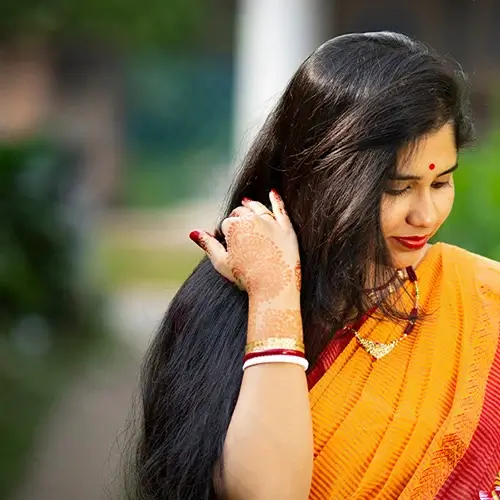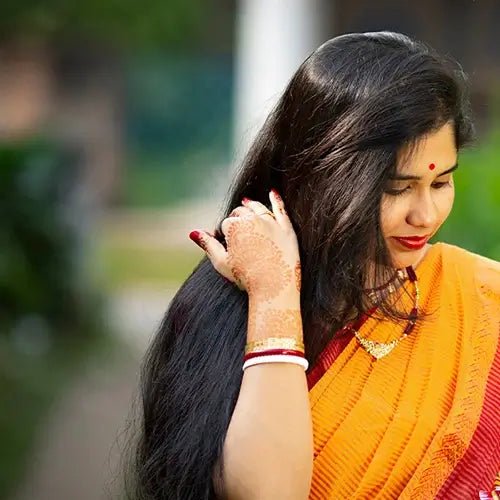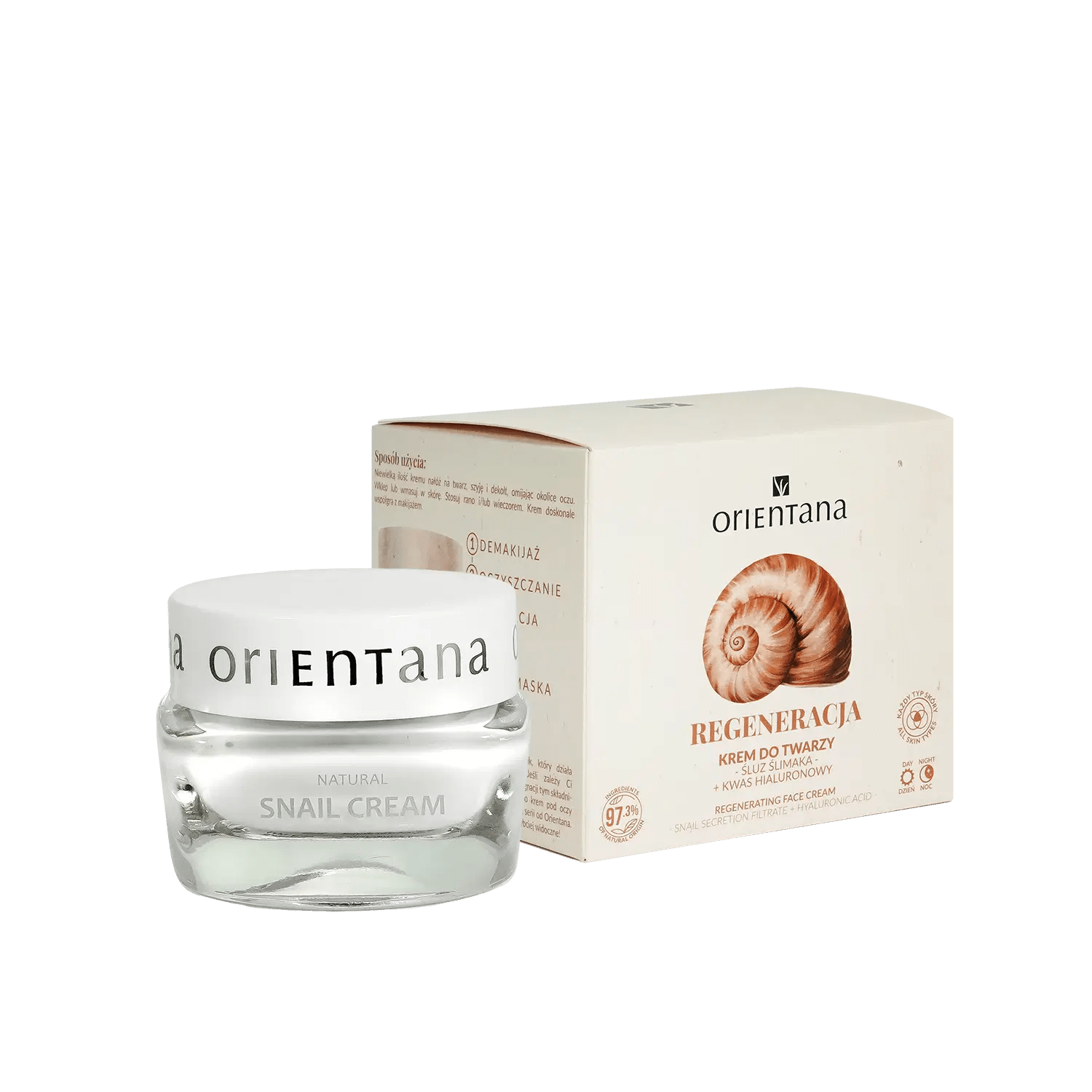Hair care in Asia is a completely different dimension. When I traveled around India, my attention was always drawn to the beautiful hair of Indian women. Black, shiny, wonderfully smooth. Their secret is hair oiling and hair henna . In an Indian home, knowledge about natural hair care is passed down from generation to generation. Hair oiling is also done to children, and so are men. Women treat hair oiling as a ritual. Usually on Saturday evening, they prepare a special mixture of oils, strengthen it with amla juice or extracts from herbs such as brahmi or shikakai, and give each other a head massage, rubbing the remains of the oil mixture into the length of the hair. This is a time for them to be together, talk, and get advice. In every Indian home, mother and daughters spend time together oiling. This is time just for them and their hair. Because oils protect hair from the harmful effects of sunlight and pollution, Indian women usually smooth their hair with coconut oil before going out and they obligatorily rub oil into their children's hair. It was from India that I brought the idea for hair oil?
Intrigued by the beautiful deep blackness of hair, also in men, I discovered that another ritual is hennaing.
Hair care in India is deeply rooted in tradition and culture. Indian women have been famous for their long, strong and shiny hair for centuries, which is the result of systematic care based on natural ingredients and rituals passed down from generation to generation.

Hair oiling
Oiling is one of the most important steps in hair care in India. Regular application of oils to the scalp and hair helps in moisturizing, nourishing and regenerating them. Oiling hair is one of the most characteristic hair care rituals in Indian homes. This practice is deeply rooted in Indian culture and passed down from generation to generation as a way to keep hair healthy, strong and shiny.
Popular oils:
Coconut oil – moisturizes, strengthens hair follicles and supports hair growth.
Castor oil – supports hair growth and prevents hair loss.
Amla oil – rich in vitamin C, strengthens hair and gives it shine.
Sesame oil – often used in Ayurveda for scalp massage.
Neem oil – has antibacterial properties and helps fight dandruff.
Herbs and natural ingredients
Indian hair care is rich in the use of herbs and natural ingredients that have nourishing, cleansing and strengthening properties.
- Henna – acts as a natural dye and conditioner, strengthens the hair and gives it shine.
- Amla (Indian gooseberry) – strengthens hair follicles, prevents graying and supports growth.
- Shikakai – a natural cleansing agent that gently cleanses the hair and scalp.
- Brahmi – improves hair structure, prevents split ends.
- Reetha – a natural foaming agent used to wash hair.
Hair Care as a Ritual
Oiling hair in India is a ritual that is often done in a family atmosphere, especially on weekends or before special occasions. It is a multi-step routine. First, the oil is warmed up, which allows it to better penetrate the scalp and hair. The oil is applied to the scalp and hair using the fingers. A gentle massage for 10-15 minutes improves blood circulation and helps the oil absorb. The oil is left on the hair for several hours, often overnight, to provide maximum hydration and nourishment. After oiling, the hair is thoroughly washed with a gentle shampoo to remove excess oil while maintaining its softness and shine. In Indian homes, oiling is done 1-2 times a week.
Ayurveda in hair care
Ayurveda, an ancient medical science, offers many tips for hair care:
- Scalp massage improves circulation and stimulates hair growth.
- Consuming Ayurvedic herbs like ashwagandha and brahmi supports hair health from the inside out.
- Using herbal masks based on turmeric, neem or henna.
Diet and health
In India, diet is very important as it affects the health of hair. People eat foods rich in:
- Protein (e.g. lentils, nuts),
- Omega-3 fatty acids (e.g. linseed oil, chia seeds),
- Vitamins A, C, E,
- Iron and zinc (e.g. leafy greens and almonds).
Avoiding chemical products
Indian women often avoid excessive chemical styling and hair dye products, preferring natural hair care methods. Often, smoothing the hair gently with a small amount of coconut oil is enough.
Regular washing and protection
In hair care, it is important to wash regularly with natural ingredients , avoiding ingredients such as SLS, SLES. Very often, ingredients such as reetha nuts or shikakai are used. It is important to protect hair from the sun and pollution by using scarves or light oils that create a natural protective barrier.
The Indian approach to hair care is a harmonious blend of natural ingredients, holistic practices, and a healthy lifestyle. The key is consistency and patience in using these methods.






